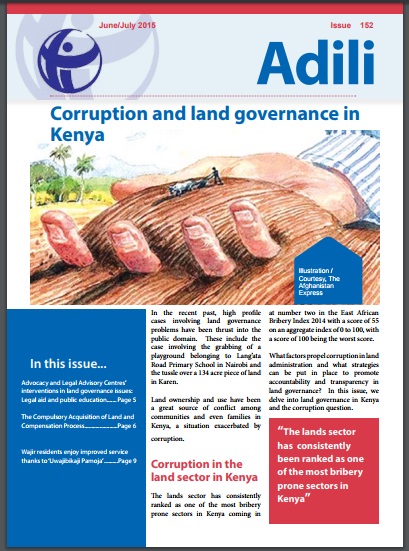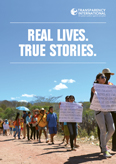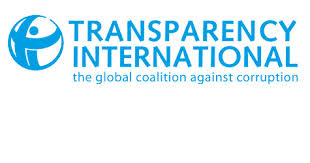Location
About
One global movement sharing one vision: a world in which government, business, civil society and the daily lives of people are free of corruption.
In 1993, a few individuals decided to take a stance against corruption and created Transparency International. Now present in more than 100 countries, the movement works relentlessly to stir the world’s collective conscience and bring about change. Much remains to be done to stop corruption, but much has also been achieved, including:
- the creation of international anti-corruption conventions
- the prosecution of corrupt leaders and seizures of their illicitly gained riches
- national elections won and lost on tackling corruption
- companies held accountable for their behaviour both at home and abroad
Mission
Our Mission is to stop corruption and promote transparency, accountability and integrity at all levels and across all sectors of society.
Vision
Our Vision is a world in which government, politics, business, civil society and the daily lives of people are free of corruption.
Values
- Transparency
- Accountability
- Integrity
- Solidarity
- Courage
- Justice
- Democracy
Programmes
For specific information about TI's work on land corruption, see here.
Resources
Displaying 26 - 30 of 46Corruption and land governance in Kenya
In the recent past, high profile cases involving land governance problems have been thrust into the public domain. These include the case involving the grabbing of a playground belonging to Lang’ata Road Primary School in Nairobi and the tussle over a 134 acre piece of land in Karen. Land ownership and use have been a great source of conflict among communities and even families in Kenya, a situation exacerbated by corruption.
Transparency International “Land and Corruption in Africa” 2015 Base Line Survey
Transparency International “Land and Corruption in Africa” 2015 Base Line Survey – part I: desk based research Background Information on Land Governance
An Analysis of Transparency and Accountability in Land Sector Governance in Zimbabwe 2013
Contains 6 chapters: introduction, accountability issues in urban land management, transparency and accountability in communal land management, corruption and land reform programmes, accountability issues in large scale land deals, gender, youths and land corruption. The findings show that land governance is fragmented creating opportunities for corruption in and across institutions.
REAL LIVES, TRUE STORIES
As many as two in three people worldwide believe that ordinary citizens can make a difference in the fight against corruption. Whether it’s taking on an abusive school system, exposing a crooked driving instructor or blocking the re-election of a corrupt mayor, these individuals are demonstrating their power to bring about lasting change in their communities.
LAND AND CORRUPTION IN SUB-SAHARAN AFRICA
Land is a vital resource that sustains livelihoods across Sub-Saharan Africa, but also one that is heavily prone to corruption. Every second citizen in Africa has been affected by land corruption in recent years, according to a study by Transparency International.







